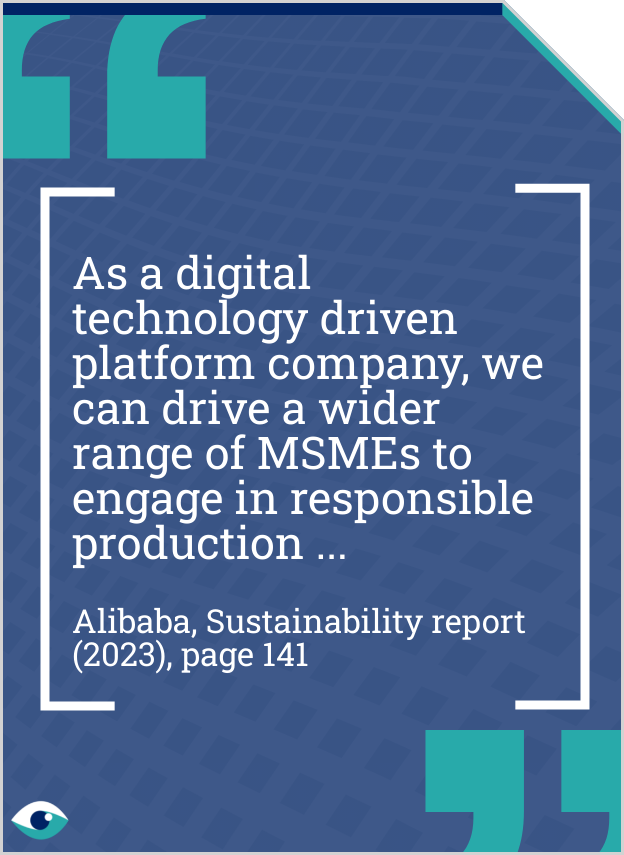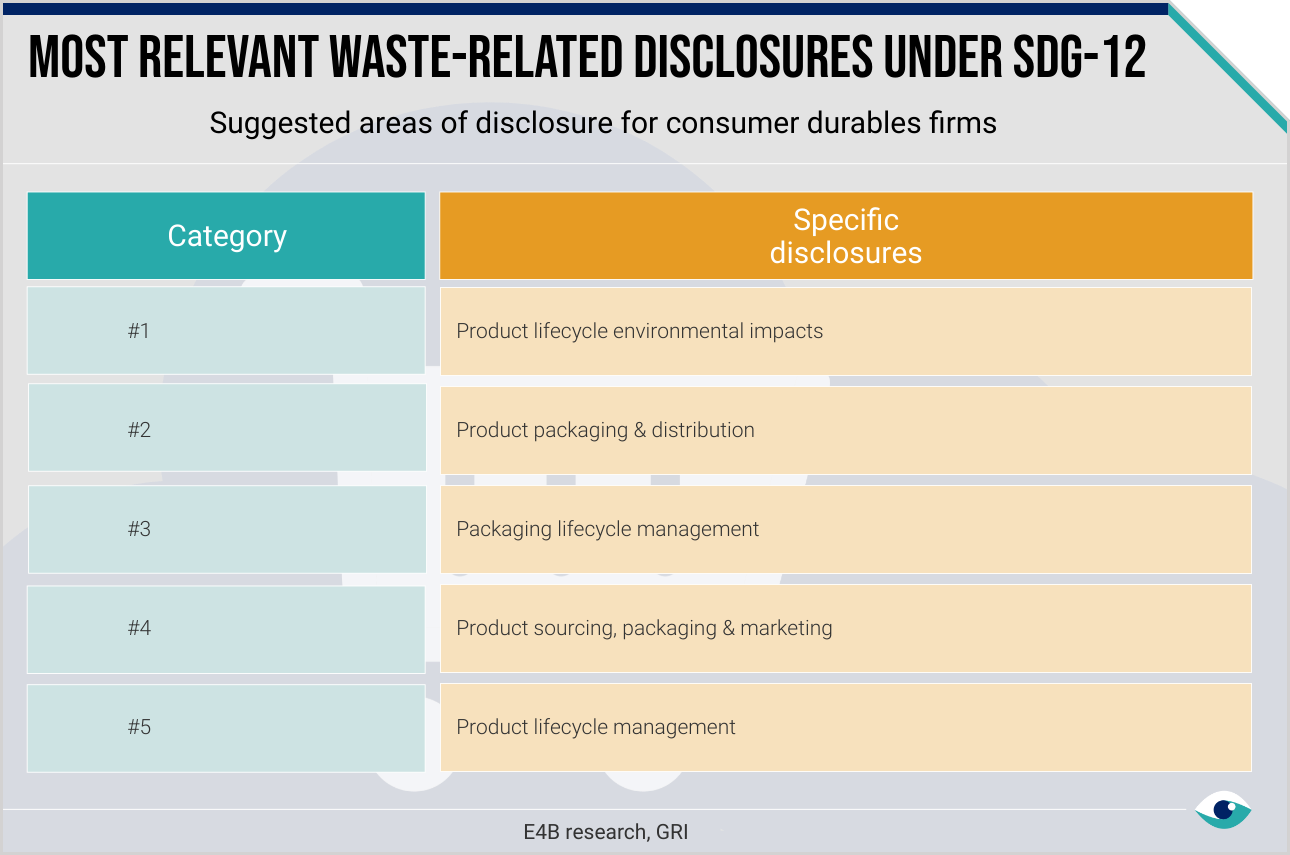In 2023, the European Commission revised its circular economy monitoring framework, adding new indicators on material footprint and resource productivity to track material efficiency. The focus on circular economy principles is associated with SDG#12 (responsible consumption and production). While acknowledging the clear role of national governments for overall regulation, the choices of individuals and firms, especially in the consumer durables sector, remain crucial. While sustainability disclosures for most firms reflect only a general association between actions and SDG#12, some consumer durables entities offer specific examples of positive impact.

All the world's a stage: crafting sustainable consumption
Empowering firms to meet SDG 12 goals through proactive customer engagement and responsible resource management
UN Sustainable Development Goals
Consumer durables (all industries)
AT A GLANCE
Some leading firms in the consumer durables sector are showing specific, impactful progress against SDG#12.
It is crucial to focus on entire product lifecycles in order to reduce environmental impact.
Looking forward, engagement with customers and suppliers can ensure long-term compliance with sustainability standards for responsible consumption and production.

Enchancing customer awareness
Enhancing customer awareness is critical in promoting sustainability and responsible consumption. By driving awareness and fostering dialogue around circularity, companies can significantly influence consumer behaviour. For instance, Alibaba’s group-level carbon ledger platform, Carbon88, exemplifies how technology can encourage consumers to adopt low-carbon habits across various scenarios. In FY2023, the platform engaged 187 million users. South Africa's Shoprite discloses awareness-raising and dialogue with its customers on specific issues relevant to SDG#12.
Supplier collaboration
Supplier collaboration plays a vital role in ensuring responsible production. Alibaba's 2023 sustainability report reveals that more than 14,000 suppliers have signed the Alibaba Supplier ESG Code of Conduct, which promotes specific sustainable practices across the firm's global supply chains. Engaging suppliers in this manner not only ensures adherence to high standards of production but also amplifies the impact of efforts across many industries, given the sheer number of suppliers engaged.

Global South considerations
Responsible consumption and production are potentially more significant in developing countries due to rapidly expanding middle-class consumption, which presents challenges for sustainable development. The relevance of SDG12, particularly in these regions, is paramount. Progress on other Sustainable Development Goals will have far less impact on levels of economic development in the Global South if negatively correlated with outcomes regarding waste generation (target 12.5 of SDG#12).
Action within firms
Resource minimisation within firms is another crucial aspect of sustainable production. Sony's 2023 sustainability report details the company's efforts to minimise water and waste from business sites and recycle products. For instance, Sony discloses extensive efforts to recycle end-of-life products from the market. Efforts to manage products’ end-of-life impacts are a specific subject of disclosure in association with SDG12.
FURTHER READING
- Extended producer responsibility and economic instruments (OECD)
- Circular Economy Action Plan (European Commission)
- SDG#12 Targets and Indicators (UN Department of Economic and Social Affairs)
